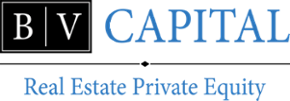Passive Investor Tips is a weekly series hosted by full-time passive investor and Best Ever Show host, Travis Watts. In each bite-sized episode, Travis breaks down passive investor topics, simplifying the philosophy and mindset while providing tactical, valuable information on how to be a passive investor.
On todays episode of Passive Investor Tips, Travis Watts examines the stages of market cycles, pointing to current signs of a potential recession, such as rising interest rates and inflation. It contrasts these indicators with the recent profit in market indexes and stable housing prices, suggesting a complex economic situation.
Click here to learn more about our sponsors:
Transcript
Narrator:
Quick disclaimer, the views and opinions expressed in this podcast are provided for informational purposes only and should not be construed as an offer to buy or sell any securities or to make or consider any investment or course of action. For more information, go to bestevershow.com.
Travis Watts:
10% of the wealthiest American households own roughly 89% of the U.S. stock market.
Narrator:
Welcome to the Best Ever Show, the world's longest running daily commercial real estate podcast. Our hosts interview commercial real estate experts every day to get you the best advice ever with none of the fluffy stuff.
Travis Watts:
Welcome back everybody to another episode of passive investor tips. I'm your host, Travis Watts. In today's episode, what we're talking about is reverse market crashes and what it means for you. Disclaimers as always never financial advice, not telling you or anyone what to do with your money. So please seek licensed financial advice.
With that top of mind, beginning with a little bit of perspective. Let's talk about market crashes historically. I think it's pretty common knowledge among all of us investors to know that markets have cycles. And the first stage of a market cycle is accumulation. It's when people finally jump into the market and begin buying up assets, whether we're talking about real estate or stocks or any other investment type or commodity. This is the first stage.
Stage number two is the uptrend in the market. Prices begin going up because there's more people buying and this can last for years on end.
Stage number three is called distribution and it's basically the top of the market cycle and buying from this point really begins to level off.
And stage number four is a downtrend or a recession.
And stage number five is the bottoming out of the market cycle. It's when assets are now on sale, which attracts more buyers to jump in, and we revert back to stage one, which is accumulation and investors buying back assets.
So where are we today? Well, debatably, we are in stage four, which is the downtrend, and we are now teetering on the edge of a potential recession.
Now, will we have a recession? I don't know. I don't have a crystal ball, but I can share with you that Deutsche Bank just conducted a study on the last 34 US recessions, and they found that there's four red flags that usually pop up, which lead to a recession.
Number one is a rapid rise in interest rates. Have we seen that over the last couple of years? Absolutely. Number two is a spike in inflation. Have we seen that over the past two years? Absolutely. Number three is an inverted yield curve. Have we seen this in the last two years? Absolutely. And number four is an oil price shock. We've also seen this in the last two years. So we have all four red flags flashing red right now in this country. Something to think about.
So most of us are familiar with how past recessions have unfolded. We'll start with recent history of the dot com crash in 2000 where the market went into a euphoric state leading up to this and then prices fell sharply afterwards. 2008, the Great Recession, the market was just on fire specifically in the real estate sector, but also in the stock market, and then prices declined sharply. The pandemic recession of 2020, the market was going up and up and up and all of a sudden corrected about 30 percent, depending on the index that we're talking about. And now here we are today teetering on the edge of a potential recession.
So what does all this mean for you? So over the past year and a half, the federal reserve has increased the fed funds rate at the most aggressive levels than we've seen in many decades. Now, historically that hurts the valuations in the pricing of real estate and of stocks and of private companies. But the irony is this year at the tail end of 2023, the market indexes at least are showing for the most part a profit for the year. They're actually up given the situations and single-family home pricing has fallen very little and in some markets in fact in many markets, it's actually increased in price over the last couple of years. So we're not exactly seeing a lot of value or benefit to jumping into these assets at the moment despite these higher elevated rates that we have.
Narrator:
We'll get back to the show with a first of sponsors I'm confident you'll find value in learning more about. Deciding how to invest your capital is more challenging than ever. That's why it's never been more important to partner with a company with a solid track record and that has thrived through various economic cycles. Companies like BAM Capital. BAM Capital is a trusted multifamily syndicator that has delivered a historical average of over 35% IRR with an average hold period of three and a half years. BAM Capital has never missed a preferred payment, never lost an LP's investment and never called capital past the subscription amount. BAM Capital is currently raising capital for a fund designed for accredited investors targeting a 15 to 20% IRR and a 2 to 2.5x equity multiple to its investors over a 3 to 5 year hold period. If you're an accredited investor and you want to learn more about multifamily investment opportunities with BAM Capital, visit capital.thebamcompanies.com. Again, that's capital.thebamcompanies.com.
Are you a real estate investor struggling to streamline your property management? Are you tired of juggling multiple systems to effectively manage your portfolio? Meet Rentec Direct, your ultimate solution for automating management tasks, reducing errors and most importantly, saving you time. Rentec Direct offers an all-in-one platform for accounting, marketing, tenant screening, rent collection and much more. And the best part? You're never alone. With US-based live support and award-winning customer service, RenTec Direct is the partner you need to streamline your property management so you can focus on what's most important, growing your business and getting more deals done. If you're an investor looking to grow your portfolio, join the more than 15,000 investors and landlords who manage real estate assets totaling more than $200 billion using Rent Tech Direct. Just go to rentecdirect.com forward slash best ever and sign up for a free trial. Plans start at just $45 a month, and you'll receive 20% off your first year just for being a best ever listener. That's R-E-N-T-E-C direct.com forward slash best ever for 20% off.
Are you raising capital for commercial real estate ventures? To make sure you comply with security laws and structure your deals correctly, talk to syndicationattorneys.com, your premier legal resource real estate syndicators and fund managers. syndicationattorneys.com dedicates its practice to helping real estate syndicators and fund managers legally raise capital from private investors. Their experienced team has helped create over $2.75 billion in security offerings, making them industry leaders in the capital raising space. To get a free copy of their book, How to Raise Capital for Real Estate Legally, go to syndicationattorneys.com or text the word FAIRLESS to 844-796-3428. That's Fairless, F-A-I-R-L-E-S-S to 844-796-3428. Launch and grow your business with syndicationattorneys.com today. This offer is not valid to Florida residents.
Travis Watts:
So let's say in a hypothetical example that the Federal Reserve decides in the next six to 12 months to drastically reduce interest rates, which is what a lot of people are hoping for and looking for. Now, what exactly would that mean? Well, it might mean that the US goes into a deep recession and they cut interest rates so that they can re stimulate the economy. It might mean that inflation comes down to their target level of two percent. And so they decide to cut rates from that point.
Or it might be from our national debt exceeding $33 trillion and higher rates are just not sustainable for the future. So in any case, we're only going to assume in this example that the Fed cuts rates in half. Is this actually a positive thing? Valuations would likely go up and increase, but we could also be subject to a reverse market crash. And let's take a look at how that might look for the three classes of the poor middle class and rich. So first of all, this would actually hurt the poor. Why? Well, most of the poor, statistically speaking, they don't have a lot in terms of excess money or investments or even homeownership in many cases or things like 401ks and IRA plans.
So the fact that the stock market might drastically go up or that real estate would go up actually ends up hurting them because that means rents go up. That means homeownership gets more unaffordable for them and it also means that many things throughout the economy continue to increase in price which would mean that inflation might be ticking up yet again. This situation would also hurt some of the middle class and it's really going to depend in this instance. So we take someone who's middle class today, they have a nice paying job but maybe they're younger and they've been renting for a while and they're looking to start a family, they're looking to be homeowners.
If they can't afford a $600,000 house today with an 8% mortgage, then what do you think is going to happen if the Fed cuts rates down to say 4%? You can now get a mortgage at 4%. Well now that same homeowner might be looking at pricing at $750,000 for a comparable home, even though they have a 4% interest rate. So it doesn't exactly make it easier for them. And additionally, only 50% of middle class Americans, roughly speaking, own stocks in a 401k IRA or in a brokerage account. Now this depends on the data that you look at, but again, this is why it depends on the particular individual who is deemed middle class and whether or not this would be a good or a bad thing for them.
So the bottom line is that a major rate cut like this would really end up benefiting the wealthy and many investors. Why? Because they tend to own stocks, they tend to own real estate, they tend to already have a pre-existing portfolio. In fact, according to CNBC, 10% of the wealthiest American households own roughly 89% of the US stock market. So, if valuations go up, their existing portfolios of stocks and real estate will likely increase, which is going to further expand the gap between the rich and the poor, and it's going to squeeze the middle class.
Cheaper rates means cheaper borrowing costs, which means that the wealthy and investors can end up leveraging more and accumulating more of these assets. So in summary, a reverse market crash is when prices actually go up, but there's very few people who end up benefiting from that particular circumstance, only a select few. So the question is, do you want to be part of this select few?
I'm not just talking about the rich and the wealthy. I'm also including investors who are looking to invest in real estate and in stocks. Are you an investor who's looking to take action to grow wealth, to build passive income, and to continue dollar cost averaging through the volatility?
You're listening to Passive Investor Tips. I'm Travis Watts, want to take a deeper dive or connect, you can find me all over social media platforms at passive investor tips or Travis Watts. Feel free to like, share, subscribe, please share these episodes with anyone you think could find value and until the next episode have a best ever week everyone and we'll see you then.
Narrator:
Hi best ever listeners Joe Fairless here again and one last thing before you go would you like to receive a short weekly email with proven tips from experienced investors, free tools and resources and a roundup of the week's most relevant news and Best Ever content? Well, if so, join the community of nearly 15,000 commercial real estate passive and active investors who receive the Best Ever newsletter. Just go to bestevercre.com forward slash access and you'll get the very next one. I hope you enjoyed this episode and as always, thank you for listening and have a Best Ever day.








